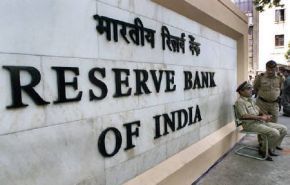 | « Back to article | Print this article |
More than four years after the then Finance Minister Pranab Mukherjee announced the government's intention to issue more banking licences, this has indeed been done.
 In 2010, there was much fervour about financial inclusion and, against that backdrop, new banks were seen as an important means of boosting capacity and penetration of financial services.
In 2010, there was much fervour about financial inclusion and, against that backdrop, new banks were seen as an important means of boosting capacity and penetration of financial services.
It was also argued that the inclusion strategies of potential licensees were going to be given significant weight in the final decision.
In the build-up that followed, the desirability of issuing licences to corporate houses and brokerage firms was much debated.
In the event, both these groups were deemed to be eligible for applying, which, not surprisingly, raised expectations that at least some of them would be approved.
But the issue of two licences out of an applicant pool of 25 suggests a more cautious - and welcome - approach.
It is evident that the Reserve Bank of India (RBI) has stood its ground and refused to allow business houses to get into banking, in spite of the obvious pressure from the government.
In the event, it has prevented regulatory capture, which would have been a danger if the big business houses had got into banking.
Equally welcome is the RBI's move to keep the door open for India Post to qualify as a bank licence recipient in the coming months, and to make the issue of bank licences a more frequent affair by opting for an on-tap mechanism for granting licences in the future.
In the past couple of decades, it is the private banks that led the charge when it came to banking innovation, the use of technology and greater customer focus.
Therefore, there is little doubt that more banks in the system would spur further improvement in these areas.
There could, thus, be questions as to how only two new banks will accomplish the tasks of improved financial inclusion, banking innovation or more efficient service delivery for customers.
But on issues such as bank licensing, the RBI would do well to continue with its conservative approach.
Perhaps the RBI has a longer game plan. In its statement, it admitted that its approach was "conservative" and opened up the prospect of more licences being issued over time, particularly within the differentiated licence framework that was proposed last year.
This implies that more specialised and bounded institutions with a focus on inclusion are likely to be issued licences soon.
But, going beyond licensing issues, the fact is the future of Indian banking, including the goal of achieving greater financial inclusion, is tied fundamentally to what can be done about government-controlled banks, which have over 75,000 branches across the country and account for three-fourths of all banking assets.
Indian banking will be truly transformed if these state-controlled banks are reformed. New bank licences for private players will make a difference, but it would take a decade and more before they begin to be systemically important.
Much more attention, therefore, needs to be devoted to the government-controlled banks.
The RBI's blueprint for reforms of the public sector banks, released earlier in the week, underlined the need for the government to reduce its equity in these entities apart from giving them more autonomy in the selection of their top personnel and a review of their incentive structure with higher compensation and greater accountability.
These suggestions deserve proper attention and policy follow-up.